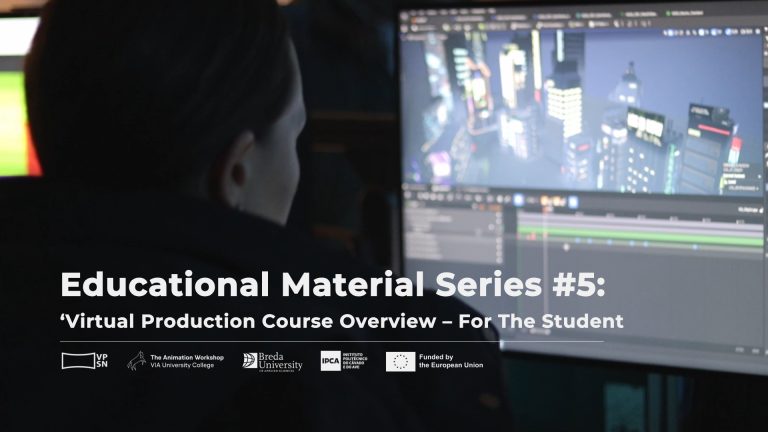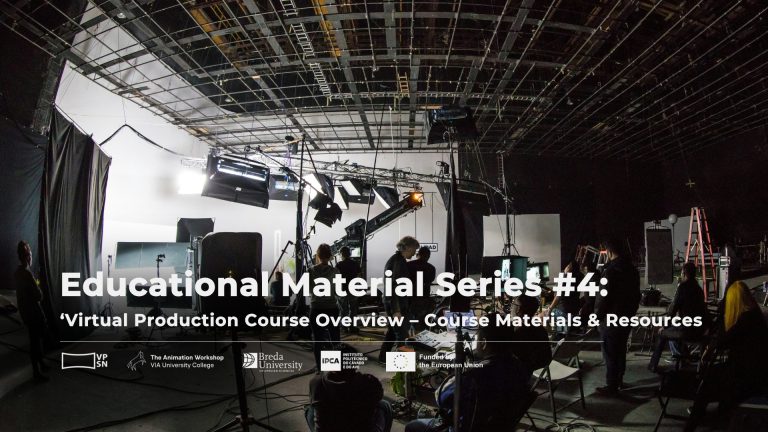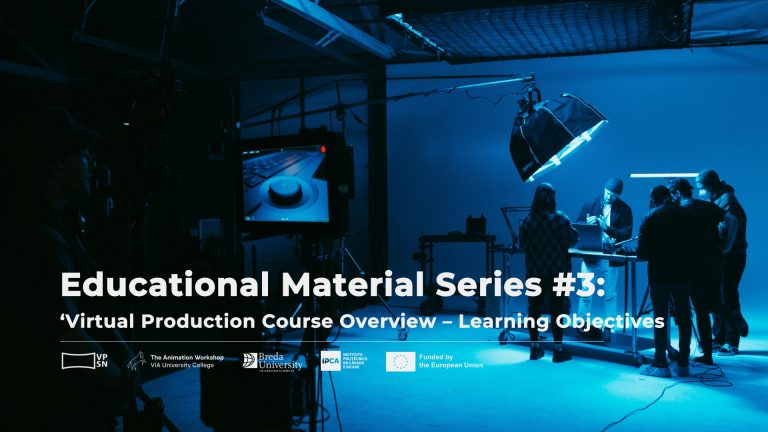Industry Research: Key Findings on Virtual Production
Welcome to the final article in our web series on the VPSN virtual production course materials! In this article, we will delve into the industry research conducted on virtual production, highlighting key findings from surveys of VP professionals, including educators, trainers, filmmakers, and industry informants from e.g. filmmakers at Netflix, virtual production experts of Epic Games, filmmaker representatives from studios such as Iron Films, Final Pixel, and ReadySet Studios.
This research provides valuable insights into the state of the industry, the skills and knowledge needed for students entering the field, and the responsibilities of educators in preparing students for their future careers.
Framing the Context on Virtual Production and Industry State
Virtual production is an innovative technology that combines real-time rendering with traditional filmmaking techniques. It has gained significant traction in the media industry, offering new creative possibilities and efficiencies. However, the rapid development of this technology has also highlighted gaps in education and training, particularly in the skills and knowledge required for students to succeed in the industry.
The following key findings from industry research provide a comprehensive overview of these gaps and the strategies needed to address them.
Key Findings from Industry Research
Missing Studio Experience
Industry professionals identified several areas where recent graduates need more preparation:
- Limited Production Experience: The most significant gap is the limited hands-on experience in real production environments. Students often graduate without sufficient time working in actual Virtual Production studios, leaving them unprepared for the demands of a professional setting.
- Hardware and Equipment Knowledge: Graduates need more direct experience with industry-standard hardware and equipment used in day-to-day operations. Familiarity with these tools is crucial for their success in professional settings.
- Real-time Technology Mastery: There are notable gaps in graduates’ technical proficiency, particularly with real-time engines like Unreal Engine. They often lack the depth of knowledge needed to work effectively with LED volumes and associated technologies.
- VP Cinematography Skills: While many graduates understand traditional cinematography principles, they struggle to apply these skills within a Virtual Production context, especially regarding VP-specific color management, camera work, and lighting techniques
Essential Skills: Building the Complete VP Professional
The surveys respondents emphasized several critical skills:
- Technical Knowledge and Proficiency: Comprehensive technical knowledge of Virtual Production systems, including real-time engines like Unreal Engine, system architecture, media servers, and emerging technologies like AI and machine learning, is essential.
- Problem Solving and Innovation: The ability to think critically and innovatively, solve technical and creative challenges in real-time, and troubleshoot effectively is highly valued.
- Understanding of Workflows and Pipelines: Knowledge of Virtual Production pipelines and workflows, from pre-visualization to final output, is foundational. Understanding production planning and on-set protocols helps graduates integrate quickly into professional teams.
- Adaptability and Communication: The dynamic nature of Virtual Production requires professionals who can quickly learn new technologies and techniques. Strong interpersonal skills and the ability to communicate effectively with both technical and creative team members are crucial.
Bridging Theory and Practice: Teaching Strategies
Industry professionals emphasize the importance of familiarizing students with the complete Virtual Production process and preparing them for a dynamic production environment. Key teaching strategies include:
- Hands-on Experience: Provide opportunities for real-time collaboration, practical sessions with VP technology, and projects that mirror real production scenarios.
- Technical Integration: Teach real-time workflows using Unreal Engine, focus on immediate feedback and iteration, and connect traditional cinematography skills to VP environments.
- Practical Knowledge: Demonstrate how virtual and physical elements interact, cover creative and production management specific to VP, and include real-world problem-solving scenarios.
Aligning with Industry Needs
The insights gathered from the industry survey validate the approach to Virtual Production education. The VPSN course development combines practical workshops with foundational lectures covering VP basics, real-time engine foundations, and collaborative projects that balance technical mastery with creative problem-solving. This approach ensures that graduates are well-prepared for the challenges and opportunities in Virtual Production.
Wrapping Up the Series
The VPSN course material and overview, along with the industry research highlighted in this article, provide a comprehensive foundation for understanding and integrating virtual production into education. By addressing the gaps identified in the research and implementing effective teaching strategies, educators can equip students with the skills and knowledge needed to succeed in the rapidly evolving media industry.
We invite both educators and students to explore the full VPSN course materials and resources available on the VPSN website. These materials offer valuable support and guidance for teaching and learning virtual production, helping to prepare the next generation of media professionals.
Thank you for joining us on this journey through the Virtual Production Studio Network course material. We hope that this series has provided you with valuable insights and inspiration for integrating virtual production into your education and career.
Dive deeper into the course materials and resources available on the VPSN website and discover the full potential of virtual production!
About VPSN
The VPSN project is an Erasmus+ initiative, collaboratively developed by three partners: The Animation Workshop/VIA University College, Breda University of Applied Sciences, and the Polytechnic Institute of Cávado and Ave. This partnership aims to create educational materials and frameworks for other educators and students, leveraging Breda University’s extensive experience in virtual production. By sharing this knowledge, the VPSN project seeks to support the European industry and educational field, particularly those interested in virtual production as an emergent technology.



